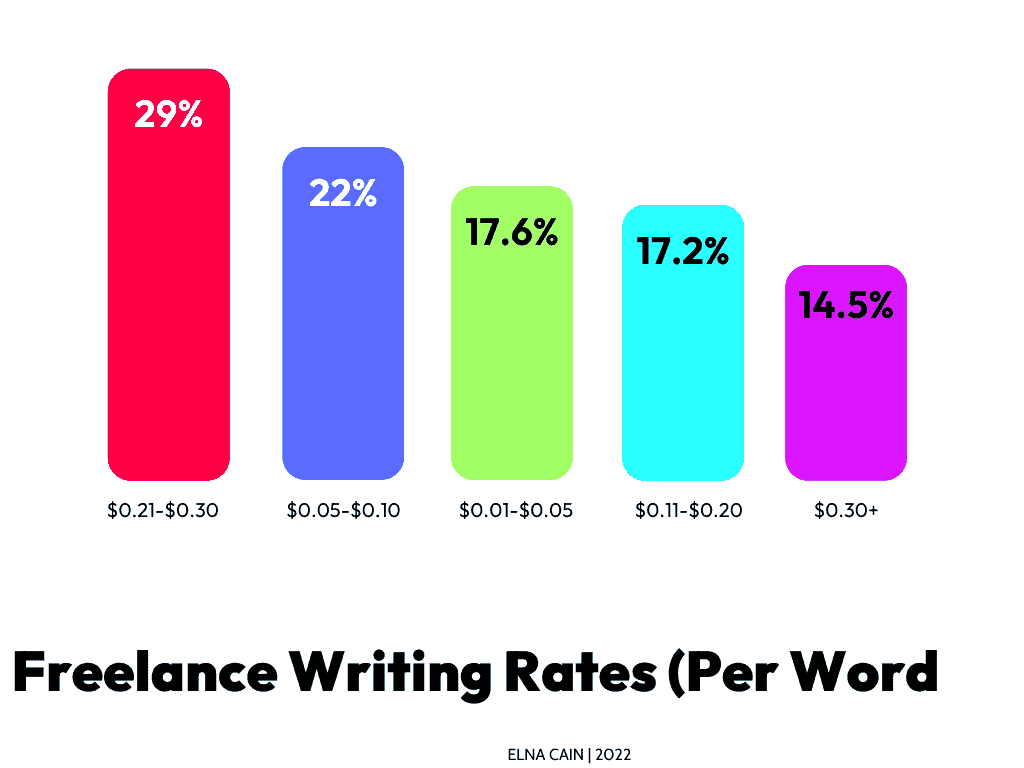Setting your hourly rate is an important step towards success as a freelance writer. It not only determines how much you earn but also shapes the perception of your clients towards your work. An ideal hourly rate must be able to accommodate all these aspects: it must be fair, reflective of one’s skills and experience, and convey the value that one brings on board. When charging fairly, a freelancer is encouraged to deliver quality services and pay bills without losing motivation for doing so.
Factors Influencing the Hourly Rate for Beginner Freelance Writers

There are several elements that may affect the hourly payment for novice freelancer authors. Being aware of these will enable you to set a fair price for your work:
- Experience Level: As a beginner, you may start with a lower rate. Gaining experience allows you to increase your rates over time.
- Industry: Different industries have different pay scales. For instance, technical writing may pay more than blogging.
- Project Complexity: More complex projects may justify a higher rate, reflecting the time and skill needed.
- Client Type: Larger companies or established clients may have bigger budgets than small businesses or startups.
- Market Demand: If there’s high demand for a specific type of writing, you may be able to charge more.
Also Read This: How to Start on Fiverr: A Comprehensive Guide for Beginners
How to Set Your Hourly Rate as a Beginner Freelance Writer

Establishing your hourly rate may seem like standing at the edge of an abyss, but it need not be so. In this article are some steps that will aid you in knowing how much to charge:
- Research the Market: Look at what other freelance writers in your niche are charging. Websites like Fiverr and Upwork can provide insights.
- Calculate Your Expenses: Determine your monthly costs (rent, utilities, software, etc.) to ensure your rate covers them.
- Consider Your Skills: If you have specialized skills, you may justify a higher rate than others with similar experience.
- Start Low but Be Ready to Adjust: As a beginner, it’s okay to start on the lower end. However, don't hesitate to increase your rate as you gain experience.
- Ask for Feedback: Once you set your rate, ask clients for feedback on your pricing. This can help you gauge if you’re charging appropriately.
Don’t forget; your charge can change as you advance in your freelance writing career. Keep track of it frequently and modify it in accordance with your abilities and market situations.
Also Read This: Steps to Becoming a Freelance Data Analyst
Common Mistakes to Avoid When Setting Your Rate
Setting an hourly rate can be quite treacherous for novice freelancers especially in writing. In a bid to safely establish a fair and competitive price, avoid these popular mistakes that would help you to achieve your goal. The following are the pitfalls that should be avoided.
- Undervaluing Your Skills: It’s tempting to set a low rate to attract clients, but this can undermine your worth. Remember, your time and effort have value!
- Ignoring Market Rates: Not researching what others in your niche charge can lead to either undercharging or overpricing. Find a balance that reflects your experience.
- Failing to Factor in Expenses: Your hourly rate should cover not only your salary but also business expenses like taxes, software, and office supplies.
- Not Updating Your Rate: As you gain experience, your rate should increase. Regularly reassess and adjust your pricing to reflect your growth.
- Overcomplicating Your Rate Structure: Keep it simple. Complicated pricing structures can confuse clients and make negotiations more difficult.
Steering clear of such errors can improve your rate and enhance your overall standing in the field of freelancing. Thus always be sure that what you are charging is commensurate with what you offer! Thus increase self-belief regarding the worth of what you provide.
Also Read This: How Does the Fiverr Algorithm Work?
Comparing Hourly Rates with Other Freelance Writers
To price competitively, it’s vital to understand how your hourly rate compares to those of other freelance writers. By comparing rates, you can know what clients are willing to pay and also help position yourself in the market.
Some methods of evaluating your pricing include:
- Freelance Platforms: Websites like Fiverr, Upwork, and Freelancer allow you to see what writers in your niche charge.
- Networking: Connect with other writers through social media or writing groups. Ask about their rates and experiences.
- Industry Reports: Look for reports or surveys that provide average rates for freelance writers in various niches.
Its essential to keep in mind that prices can vary tremendously depending on aspects such as place, qualification and also the particular writing being done. Align yourself with the skills you have acquired but still stay ahead of others within your specialization.
Also Read This: What If Clients Don’t Leave Reviews on Fiverr?
Strategies for Increasing Your Hourly Rate Over Time
As you become more knowledgeable and assured in your writing talents, it is essential that you steadily enhance the hourly charge. Here are several approaches meant to help you achieve this:
- Showcase Your Experience: Create a portfolio that highlights your best work and any successful projects. A strong portfolio can justify a higher rate.
- Seek Client Testimonials: Positive feedback from clients can boost your credibility and make clients more willing to pay a higher rate.
- Offer Specialized Services: Developing expertise in a niche area can allow you to charge more. Clients often pay a premium for specialized knowledge.
- Expand Your Skills: Take courses or attend workshops to enhance your skills. The more skilled you are, the more valuable you become.
- Communicate Your Value: Clearly communicate the benefits clients receive when they hire you. Make sure they understand the value you bring to their projects.
This approach can lead to an increase in both your pay per hour and a reliable freelancing profession. Keep in mind, that with your expansion comes more money making opportunities!
Also Read This: How to Find Low Competition Gigs on Fiverr
Resources for Finding Competitive Hourly Rates
It could be difficult to determine the appropriate hourly charge, particularly for first-time freelance authors. Fortunately, a wide range of sources are available to assist you in this task and figure out reasonable rates in your sector. Below are some important tools and websites worth considering:
- Freelance Marketplaces: Websites like Fiverr and Upwork allow you to see what other writers are charging. Browse profiles similar to yours to get an idea of market rates.
- Industry Surveys: Look for surveys published by writing organizations or freelance associations. These often provide valuable insights into average rates by experience level and writing type.
- Social Media Groups: Join freelance writing groups on platforms like Facebook or LinkedIn. Members often share their rates and experiences, which can help you gauge your pricing.
- Forums and Communities: Websites like Reddit have communities where freelancers discuss their rates and share advice.
- Local Networking Events: Attend local or virtual networking events for writers. Connecting with others in your field can lead to discussions about pricing and what’s fair in your area.
These resources will help you to come up with a competitive hourly charge that represents your expertise and worth to clients. Using these tools from time to time is not a bad idea if you really want to be in touch with industry norms!
Also Read This: How to Cash Out from Fiverr: A Complete Guide
Frequently Asked Questions
As a beginner freelance writer, setting your hourly rate may leave you pondering. Here are common questions that are usually asked by freelance writers when they start out and their respective answers:
- What is a typical hourly rate for beginner freelance writers? Rates can vary widely, but beginners often charge between $15 to $50 per hour depending on their niche and experience.
- How can I justify raising my rate? If you've gained experience, added skills, or received positive client feedback, these are valid reasons to increase your rate.
- Should I charge a flat rate or hourly? It depends on the project. Flat rates work well for defined projects, while hourly rates are better for ongoing or unpredictable work.
- How often should I review my rates? It's a good idea to review your rates every six months or after completing a significant project.
- What should I do if a client refuses my rate? If a client can't meet your rate, consider negotiating or politely declining. Remember, your skills are valuable!
Conclusion
Establishing an appropriate hourly fee as a novice freelance author may appear intimidating; however, it is crucial in creating a prosperous professional life. Therefore, to set prices which are commensurate with your worth, its imperative that you understand the parameters that determine one’s rate, sidestep typical blunders and take advantage of available resources. Additionally, frequently reviewing your fee as you accrue experience and abilities will make certain that you stay in contention within the freelance industry. Lastly but not least remember to stand up for yourself since your skills and time warrant it. Here’s to writing success!




